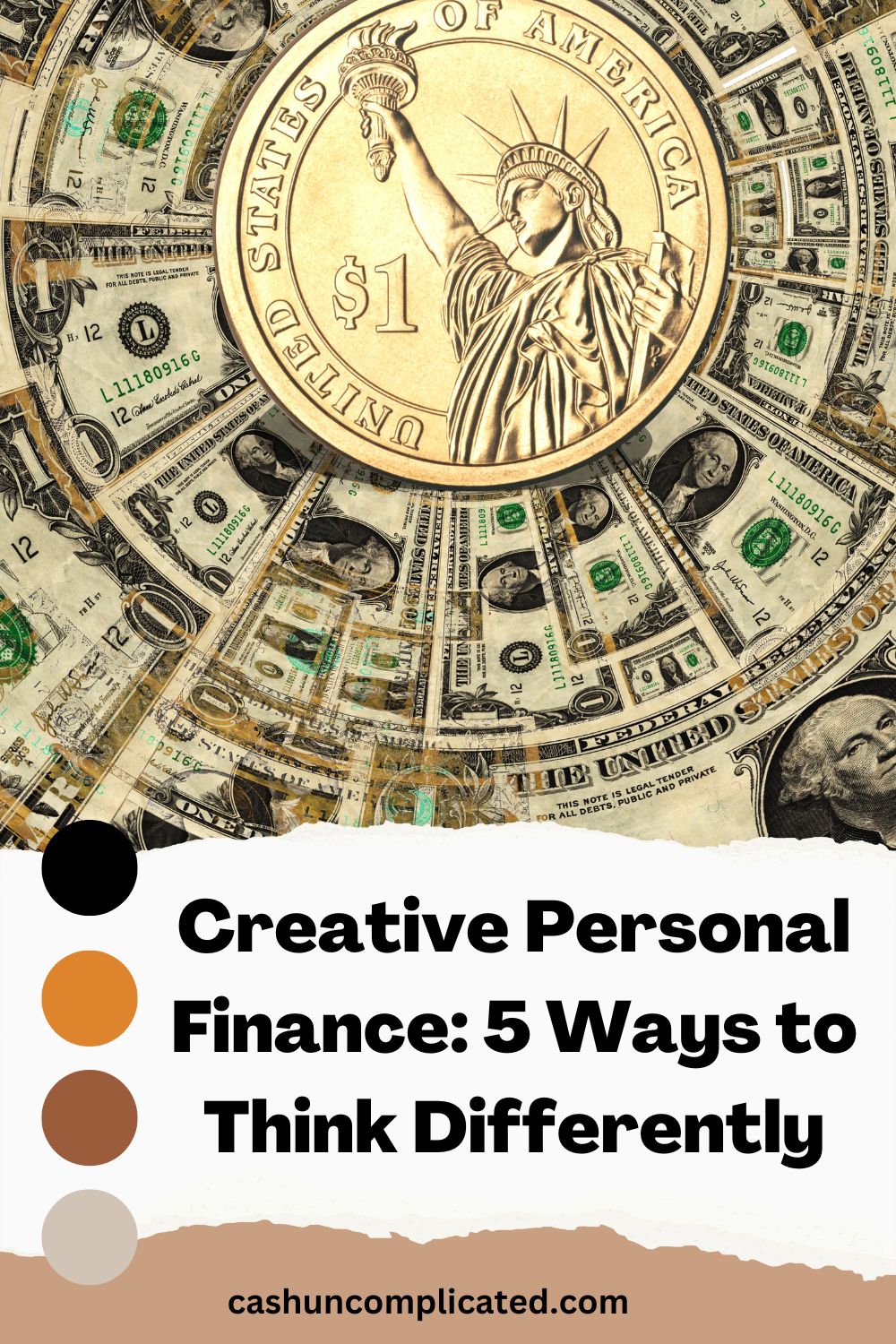Let me start out this post by posing a question. If you were running late for your flight and needed a quick ride to the airport, who would you rather have pick you up?
- Driver who has 20 years of experience, clean driving record, and reliable track record. They drive a 10-year-old used four door sedan.
- Driver who has always lived in a big city and never had a need to drive. Driver once practiced with a friend in a parking lot but that was about the extent of it. They drive a brand new Ferrari.
Of course we would pick A right? We need to get to the airport! Driver A is reliable and has a great track record. Sure, their car isn’t a Ferrari but it’s reliable. More importantly, the driver has the experience and knowledge to get the job done. Yet so many of us talk about winning the lottery or running into some type of financial windfall to solve all of our money problems.
There was a study conducted in 2011 that tracked lottery winners in Florida. The study randomly selected lottery winners of between $50,000-$150,000 and compared them to winners of $10,000 or less. The study found that the rates of bankruptcy filings for the larger winners after two years were smaller than the winners of $10,000 or less.
However, between years three to five, the study found the rates for both winners were similar. In other words, winning a larger amount only delayed bankruptcy, but didn’t prevent it.
There are countless stories of lottery winners going broke only years after winning the lottery. We’ve all seen headlines like these:
- Lottery winner files for bankruptcy three years after winning
- From lottery winner to bankrupt
- Lottery winner loses it all four years later
If winning the lottery doesn’t solve people’s financial problems, what will? The answer is in the question about the driver to the airport. Driver A has experience and understands how to drive. Driver B has an unbelievable car, but doesn’t know how to operate it.
I look at money in a similar fashion. You have to know how to operate it and understand how it works. Albert Einstein said about compound interest: “He who understands it, earns it; he who doesn’t, pays it.”
The person with basic financial literacy has a huge advantage in their life. Robert Kiyosaki repeatedly stresses in Rich Dad Poor Dad how critical it is to understand the difference between an asset and a liability. Those with financial literacy understand what an asset it, and consequently purchase them at a much higher rate than liabilities. Those without financial literacy have little understanding of the difference between the two, and as a result, purchase more liabilities than assets.
Furthermore, many people who purchase liabilities see them as assets when they’re really liabilities. One of the best visuals I’ve seen on this is a graphic posted on Personal Finance Club that has a side by side comparison of purchasing a Tesla Model S in 2012 for $77,000 versus purchasing 11,390 shares of Tesla stock in 2012 for $76,996. On the next line, the graphic shows the value of both in 2020. The 2012 Tesla Model S is worth a little over $31,000. The Tesla stock is worth over six million dollars!
The car itself lost value, as almost all cars do. The stock however gained tremendous value and made the investor wealthy. The person who purchased the car is a consumer and purchased a liability. The person who purchased the asset is an investor and is now wealthy because of it. Since the investor purchased the asset first, they can now afford to buy liabilities if they want.
Of course this is a dramatic example, and picking individual stocks is not for everybody. But even if someone purchased index funds or an investment property instead of a new Tesla in 2012, they would be in a much better financial positon a few years down the road. Not six million dollars better, but still much better. You’re not always going to hit a grand slam like Tesla stock in 2012 on your investments, but remember that base hits are good too. To continue with the baseball analogy, the base hits throughout the years add up to a whole lot of runs.
The financially literate investor understands they need to buy assets first and minimize liabilities. Those without financial literacy purchase liabilities, often using credit, which compounds the negative effects.
It’s not difficult to attain financial literacy, but it’s also not easy. Our culture is one of spending on things before we can afford them. Hence the massive amounts of credit card and consumer debt. There’s also a keeping up with the Joneses mentality that further encourages spending. Not to mention that financial literacy is generally not taught in schools.
Would You Rather?
Let’s pose another question. What position would you rather be in?
- 27 years old, have no financial literacy and win three million in the lottery.
- 27 years old, have a high degree of financial literacy, and make $50,000 per year.
Person A has three million dollars but does not understand how money works. Suppose he did the following in the first few months of winning the lottery:
- Quit his job
- Gifted family members and friends a total of $800,000
- Purchased a new car for $90,000
- Bought all new clothes for $40,000
- Purchased a home in cash for $900,000
- Inflated his lifestyle from spending $45,000 per year to $300,000 per year
Right off the bat, person A is down to 2.2 million dollars because he gifted friends and family members $800,000. I’m not saying this isn’t a nice thing to do, he just doesn’t know that he can’t afford to do this. He also quit his job, meaning he currently has no incoming cash flow other than the lottery winnings. The $90,000 car purchase and $40,000 clothes purchase takes him down to a little under 2.1 million.
He then purchases a home in cash for $900,000. This isn’t necessarily a bad decision, but it does take him down to under 1.2 million. It’s great that he won’t have principal and interest payments, but he still has property taxes, insurance, and repairs. At minimum, that’s going to be $1,000 per month, likely closer to $1,500 depending on what state he’s living in.
Most concerning is that he inflates his yearly expenses to $300,000. With 1.2 million left and $1,500 in housing costs, he’s on pace to go through his money in about four years if he continues to spend $300,000 per year. This guy might be a very good person. After all, he was very generous to give friends and family members $800,000. He just doesn’t have a lot of financial literacy and is on pace to go through his money very quickly.
Compare that to person B who has financial literacy. He didn’t win the lottery like the first person (he also doesn’t play the lottery so it would be kind of hard to win). He makes $50,000 per year after taxes and is highly intentional about paying himself first. He currently invests 25 percent of his income, $1,042 per month.
Person B lives on the rest of his money with no problem. He has a roommate and drives a nice used car that he purchased in cash. He makes an effort to invest as much money as he can into assets, while reducing his liabilities. One year from now he expects to be making $300 more per month and is planning on investing that entire amount. Which will put his monthly investments at $1,342 per month, which is well over 25 percent of his earnings.
At this very moment in time, the lottery winner has a lot more money than the financially literate person. However, that gap is quickly narrowing and in less than four years, the financially literate person will overtake the lottery winner in assets outside personal residence.
The lottery winner is living (perhaps unknowingly) an unsustainable financial life while the financially literate individual is slowly but surely building long term wealth. Even in a short ten years from now, assuming a ten percent rate of return, person B will have $272,984 and growing while the lottery winner may or may not have been able to afford to keep his house.
Assuming the same 10 percent rate of return, the financially literate person will have $547,791 in 15 years, $990,371 in 20 years and $2,851,089 in 30 years. And this is without him increasing his contributions at all, which is very unlikely. A more likely scenario is that he increases his contributions a couple percentage points each year, which would leave him with a whole lot more money than the projections above.
Meanwhile, the lottery winner who struggles with financial literacy will have to make major life changes to sustain his lifestyle. The short term high of winning the lottery will be a distant memory just four or five short years from the time he won.
Closing Thoughts
To me, our minds are our most important asset. Once you’ve got the knowledge, it can’t be taken away. Financial windfalls like winning the lottery, an inheritance, or getting lucky with a speculative investment can be lost. And lost quickly without any knowledge of how to get it back. Whereas, you can take away the entire fortune of someone with financial literacy and they’ll be right back on the path to financial success almost immediately.
I think of developing our minds and gaining financial literacy like winning the lottery. Except much better because it provides infinite returns. Whether it’s in the area of personal finance, science, psychology, or any other subject—there is literally no limit to what we can do if we have the knowledge and take the actionable steps to reach our goals.
Would you rather win the lottery or have financial literacy?








